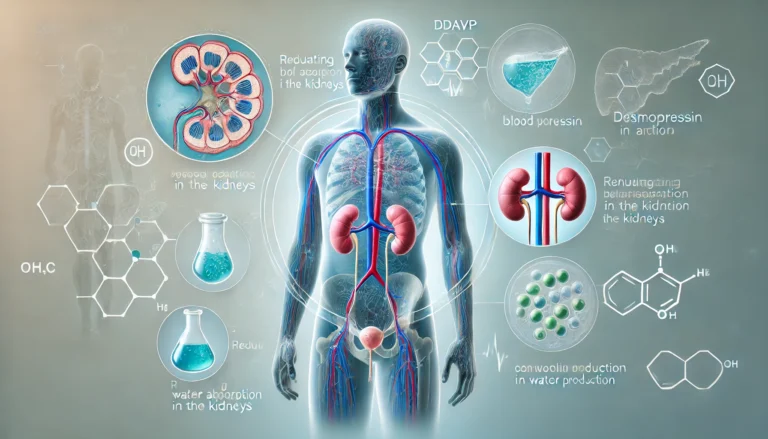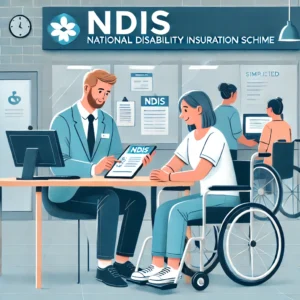In the Australian context, the National Disability Insurance Scheme (NDIS) represents the most revolutionary alternative for assisting humans with disabilities. A remarkable transformation has been noted since the NDIS began, providing participants with outstanding freedom to oversee their personal lives and care. NDIS Melton is moving away from a mass, standardised model towards a more personalised and participatory approach, which enhances individuals’ control and significantly improves their well-being.
1. The Essence of Choice and Control
The NDIS centres on the concept of ‘choice and control,’ allowing users of the services to determine their preferences for disability services and choose who should deliver these services to them. It accepts people’s peculiar situations and strives to allow them to achieve their goals and desires – the concept of autonomy.
It Signals a new change towards a more liberal and flexible system that respects the participants’ freedom above organisational constraints.
2. How NDIS Operates in Melton
The National Disability Insurance Scheme in Melton adapts and responds to the dynamic needs of its participants. Each participant works with the planner and coordinator of the NDIS to devise an individual plan of the kind and extent of support and the types of services that fulfil the participant’s goals.
Such goals can be related to increasing daily living skills, mobility, employment, or independent community involvement. NDIS has a provision emphasising the goal of each participant, which guarantees each participant gets the required support to have a meaningful life with full participation in the community.
3. Comprehensive Benefits of the NDIS in Melton
The NDIS framework offers several critical advantages for the residents of Melton:
- Enhanced Autonomy: Participants in the NDIS can choose service providers that best align with their personal needs and values. This enhanced autonomy empowers individuals to make informed decisions about their care, fostering a sense of ownership and control over their support services, ultimately leading to improved satisfaction and outcomes.
- Customised Support Plans: The NDIS has designed personalised support solutions for every person based on their endeavouring needs. These plans concern education, employment, health management, and basic daily living needs so that people can access all the requisite support to accomplish all their dreams.
- Increased Community Participation: In turn, they will transition into greater independence. Thus, social inclusion would lead to better health for community members. The ways citizens gain access to social events, volunteering, and various local activities are the key to forming social networks and feelings of social inclusion.
- Continuity of Care: Strategic planning in the NDIS enables its participants to be well supported from the start of their planning until they no longer require the service. Such continuity of care is beneficial in enhancing confidence between the participants and their providers since it enables the participants to establish stable associations with their providers that are crucial to the progress and welfare of the participants in the long run.
- Economic Contributions: As a result, the NDIS assists with providing fair opportunities by promoting work and community engagement, which has massive incentives for improving the local economy. Providing a means through which persons with disabilities can enter the job market is a plus to their financial capacity and enhances society’s consumerism.
4. Addressing the Challenges
Despite its benefits, the NDIS can sometimes be daunting for new participants, particularly in navigating its comprehensive system:
- Complexity of Choices: This is due to the vast number of products and brands in the market. A buyer may need clarification when faced with such a variety. Adequate decision-making support is crucial for helping participants utilise their plans fully.
- Provider Availability: There are issues with the geographical location of such suitable providers; the participants may be forced to search in areas other than the immediate locality.
- Plan Management: Self-managing an NDIS plan means that one has to take charge of the correct planning, implementation, and monitoring, which can be challenging if one needs proper assistance, especially if they have a complicated NDIS plan.
To address these issues, NDIS Local Area Coordinators and specialised support workers in Melton provide essential guidance. They help participants understand their plans and make informed choices. Furthermore, several local organisations offer workshops and seminars to educate participants about their rights and the features of the NDIS.
5. Empowering Participants Through Support Networks
Building a robust support network is vital for maximising the benefits of the NDIS. In Melton, various community groups and services work alongside the NDIS to provide holistic support:
- Peer Support Groups: These groups offer opportunities for participants to share experiences and advice, reducing feelings of isolation and building community ties.
- Educational Programs: Local educational institutions and training centres often tailor programs to the specific needs of NDIS participants, promoting lifelong learning and skill development.
- Health and Well-being Services: Specialised health services ensure participants receive the medical care they need with their NDIS plans, promoting an integrated approach to health and disability.
6. The Future Outlook
It is crucial to continue the feedback and adjustment while the National Disability Insurance Scheme (NDIS) is still developing as a program. Ndis providers further anticipate improvement in the future in the form of making these procedures less complicated to increase the ease of access to these services and assistance.
Additionally, They will emphasise enhanced provider training to ensure support workers have the necessary skills and knowledge to assist participants effectively. Increased funding for emerging technologies will also play a critical role, providing innovative solutions that further aid participants daily, ultimately promoting greater independence and improved quality of life.
Final Takeaway
The National Disability Insurance Scheme (NDIS) in Melton is a more recognisable example, achieved through a commitment to acknowledge and prioritise the needs of people with disabilities. Moreover, the focus on choice and control as major strategies skilfully boost participants’ quality of life, and diversity enriches the community.
As Melton continues to incorporate change, the social benefits of the NDIS are underway as the society seeks to increase its inclusiveness. Only this paradigm shift represents a similar revolution in providing disability care and the ongoing process of restructuring society and granting each human being an equal right to lead a productive life with support for the needed care.













